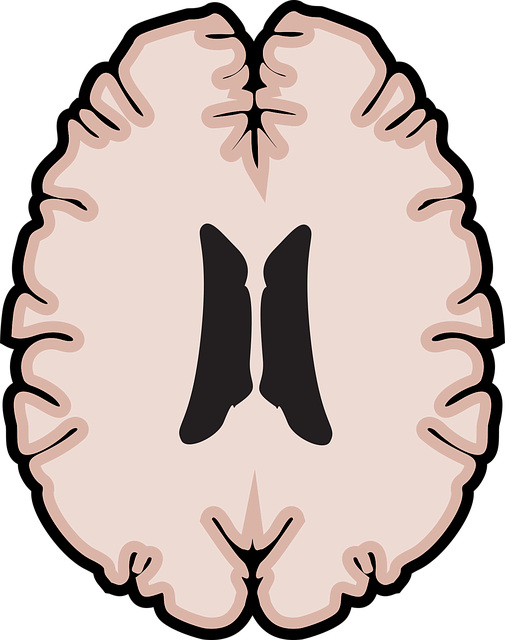Greenwood Village Polyamorous and Open Relationships Therapy offers specialized Crisis Intervention Team (CIT) training, empowering healthcare providers with tools to de-escalate high-stress situations. This comprehensive program covers mindfulness meditation, communication strategies, cultural sensitivity, and trauma support, ensuring team members can provide compassionate assistance to individuals in distress. Through realistic simulations and self-care practices, CIT members gain confidence in handling crises, promoting long-term mental well-being and fostering a resilient community. The training equips participants with skills to manage triggers related to polyamorous relationships, preventing burnout and encouraging positive impacts on both the community and their own mental health.
In today’s complex social landscape, crisis intervention teams (CITs) play a vital role in providing immediate mental health support. These specialized groups are crucial in de-escalating critical situations and promoting community well-being. This article explores the significance of CIT training programs, focusing on the unique approach offered by Greenwood Village Polyamorous and Open Relationships Therapy. We delve into essential components, benefits, and practical exercises, highlighting how these programs empower individuals to handle real-world crises effectively.
- Understanding Crisis Intervention Teams: A Vital Resource for Mental Health Support
- The Role of Greenwood Village Polyamorous and Open Relationships Therapy in Training Programs
- Key Components of Effective Crisis Intervention Team Training
- Benefits and Impact on Community Well-being
- Preparing for Real-World Scenarios: Simulation and Practice Exercises
Understanding Crisis Intervention Teams: A Vital Resource for Mental Health Support

Crisis Intervention Teams (CITs) are a vital resource for mental health support, especially in diverse communities like Greenwood Village, known for its Polyamorous and Open Relationships Therapy. These teams are designed to provide immediate assistance during times of crisis, ensuring individuals receive the help they need before situations escalate. CIT members are typically trained to de-escalate high-stress scenarios using evidence-based practices, such as Mindfulness Meditation, effective Communication Strategies, and Self-Awareness Exercises. Their expertise enables them to offer compassionate support while promoting long-term mental well-being for those facing emotional distress.
The Role of Greenwood Village Polyamorous and Open Relationships Therapy in Training Programs

Greenwood Village Polyamorous and Open Relationships Therapy plays a significant role in crisis intervention team training programs by offering unique insights into navigating complex interpersonal dynamics. In today’s diverse society, understanding polyamorous and open relationships is essential for creating inclusive and effective support systems during crises. This therapy provides specialized training that enhances the capacity of healthcare providers to address the mental wellness needs of individuals from these relationship structures.
Through comprehensive Mental Wellness Journaling Exercise Guidance, participants learn to recognize and manage potential triggers related to relationship challenges within crisis situations. By integrating Burnout Prevention Strategies for Healthcare Providers, the program equips team members with tools to maintain their own resilience, ensuring they can effectively support others without compromising their well-being. This holistic approach fosters a supportive environment where every team member feels empowered to make a positive impact during critical interventions.
Key Components of Effective Crisis Intervention Team Training

Effective crisis intervention team (CIT) training programs are multifaceted, encompassing various essential elements to prepare teams for real-world challenges. One key component is Cultural Sensitivity in Mental Healthcare Practice, ensuring that CIT members understand and respect diverse cultural backgrounds, beliefs, and traditions when interacting with individuals in crises. This sensitivity fosters trust and enhances the effectiveness of interventions, especially within communities like Greenwood Village’s polyamorous and open relationships therapy circles.
Additionally, training should focus on Emotional Healing Processes to equip team members with skills to recognize and respond appropriately to a range of emotional states. Trauma support services are another critical aspect, as many individuals in crisis have experienced complex trauma. Through role-playing scenarios and debriefings, CIT trainees learn effective strategies for trauma-informed care, enabling them to provide safe and supportive interventions that promote healing rather than retraumatize individuals.
Benefits and Impact on Community Well-being

Crisis intervention team training programs play a pivotal role in enhancing community well-being by equipping individuals with the skills to support others during times of crisis. These initiatives, such as those offered at Greenwood Village Polyamorous and Open Relationships Therapy, not only empower participants with practical tools for de-escalation and crisis management but also foster a deeper understanding of mental health awareness. By training a diverse range of individuals, from first responders to community leaders, these programs create a robust network capable of responding effectively to various emergencies, including domestic disputes, suicidal ideation, and other high-stress situations.
The impact extends beyond immediate crisis resolution. Regular exposure to crisis intervention techniques boosts confidence among participants, enabling them to better manage their own mood and mental health. This self-efficacy translates into improved relationships, enhanced decision-making under pressure, and a more resilient community overall. In light of these benefits, it’s clear that investing in crisis intervention team training programs is not just a strategic move but also a crucial step towards fostering a healthier, more supportive society.
Preparing for Real-World Scenarios: Simulation and Practice Exercises

Preparing for real-world crisis situations is a critical aspect of crisis intervention team (CIT) training. Simulation exercises and practice scenarios allow participants to experience and respond to various distressing events, such as sudden loss or traumatic incidents, in a safe and controlled environment. These exercises mimic real-life situations, enabling the CIT members to practice their communication skills, empathy, and problem-solving strategies. By engaging in these realistic simulations, team members can develop confidence in handling crises effectively.
At Greenwood Village Polyamorous and Open Relationships Therapy, we understand that preparing for crisis intervention goes beyond theoretical knowledge. That’s why our training programs incorporate hands-on practice exercises focused on self-care practices and emotional regulation—essential components of coping skills development. Through these simulations, individuals learn to manage their own emotions while providing support to others in distress, fostering a deeper sense of understanding and resilience within the team dynamic.
Crisis intervention team (CIT) training programs, enriched by innovative approaches like those offered by Greenwood Village Polyamorous and Open Relationships Therapy, play a pivotal role in enhancing mental health support within communities. By focusing on key components such as empathetic communication, de-escalation techniques, and collaborative problem-solving, these programs equip participants with invaluable skills to navigate real-world crisis scenarios effectively. The benefits ripple through communities, fostering improved well-being and resilience. Through practical exercises and simulations, CIT members gain confidence in handling diverse situations, ensuring that help arrives promptly and efficiently when it’s needed most.











